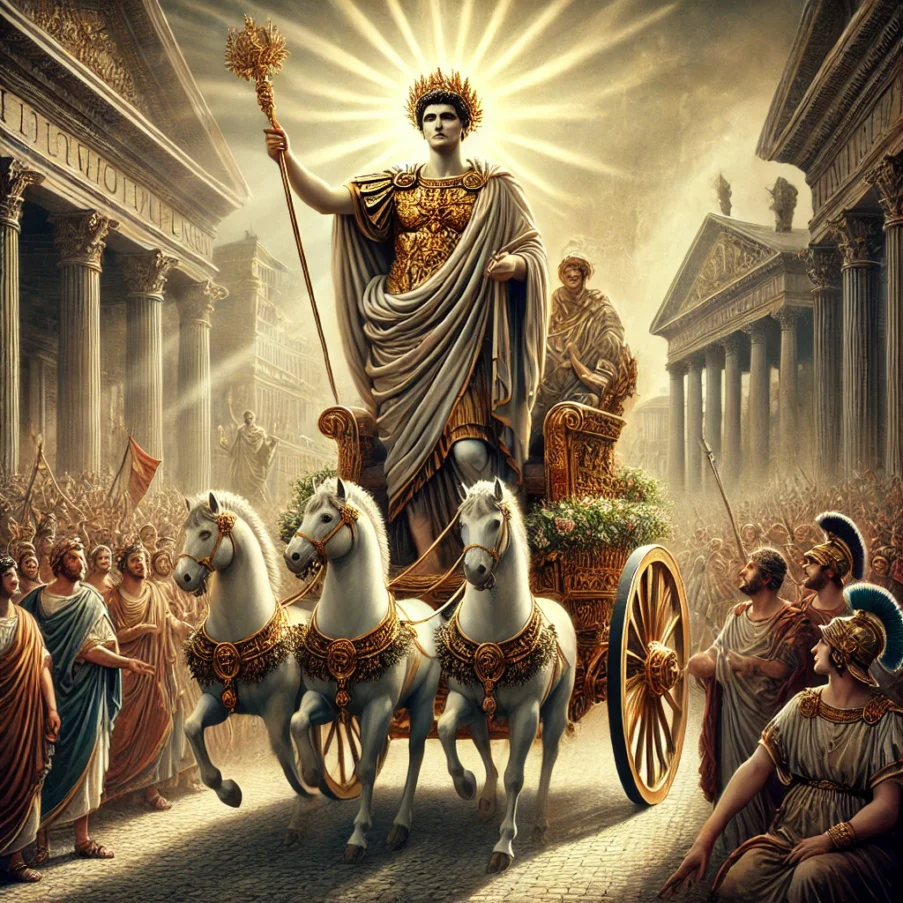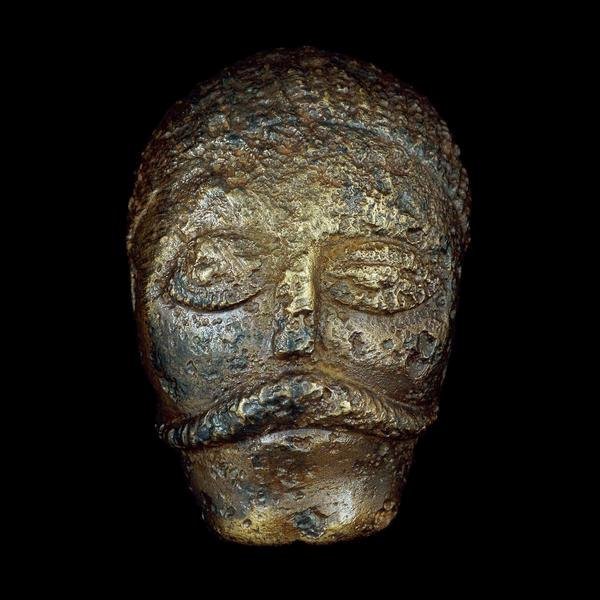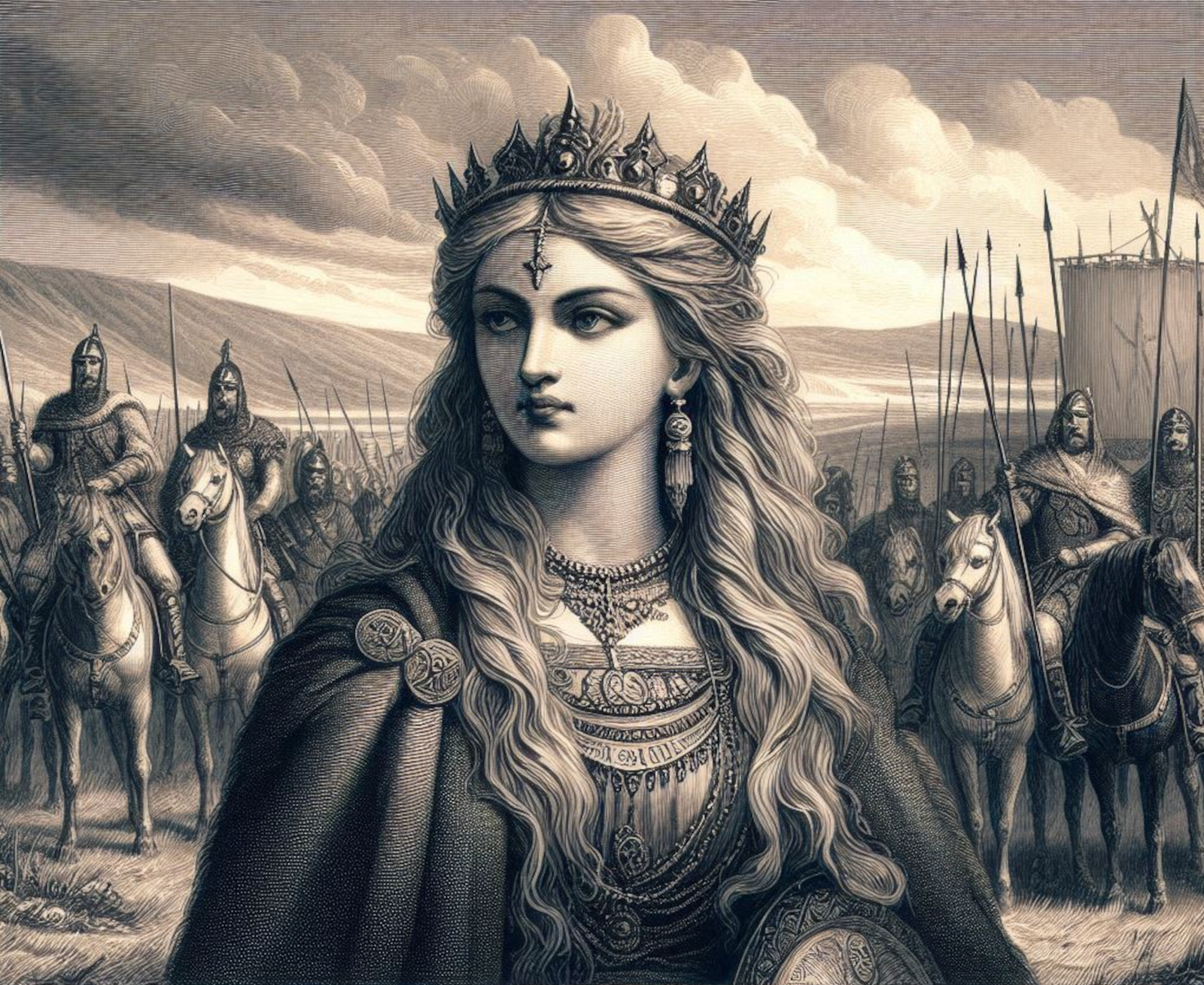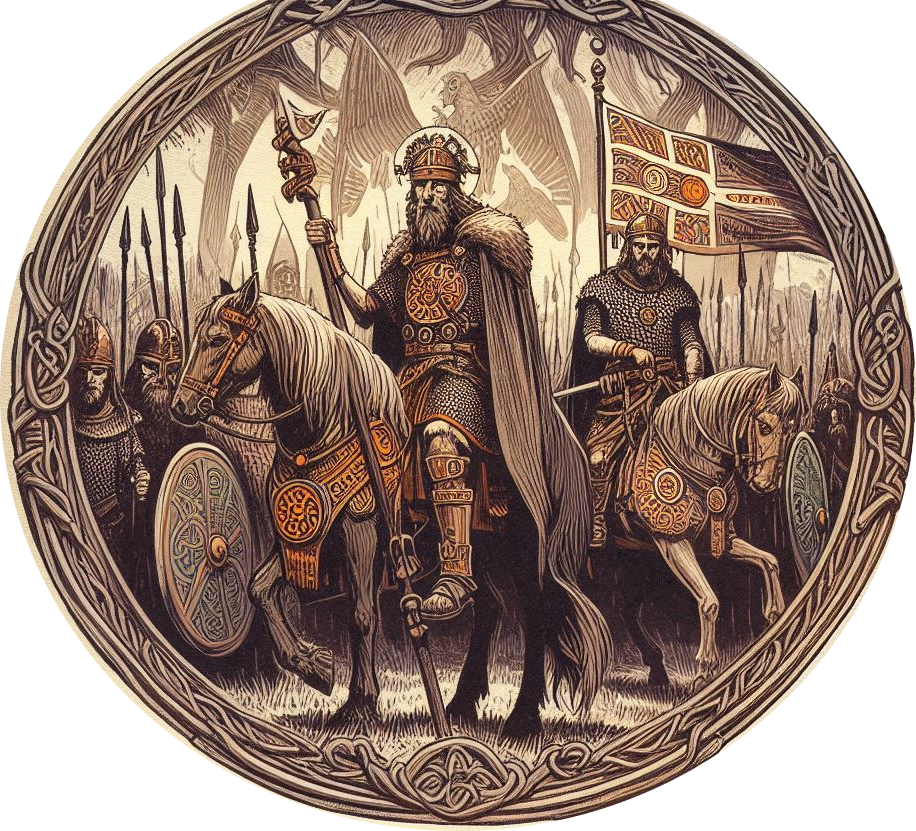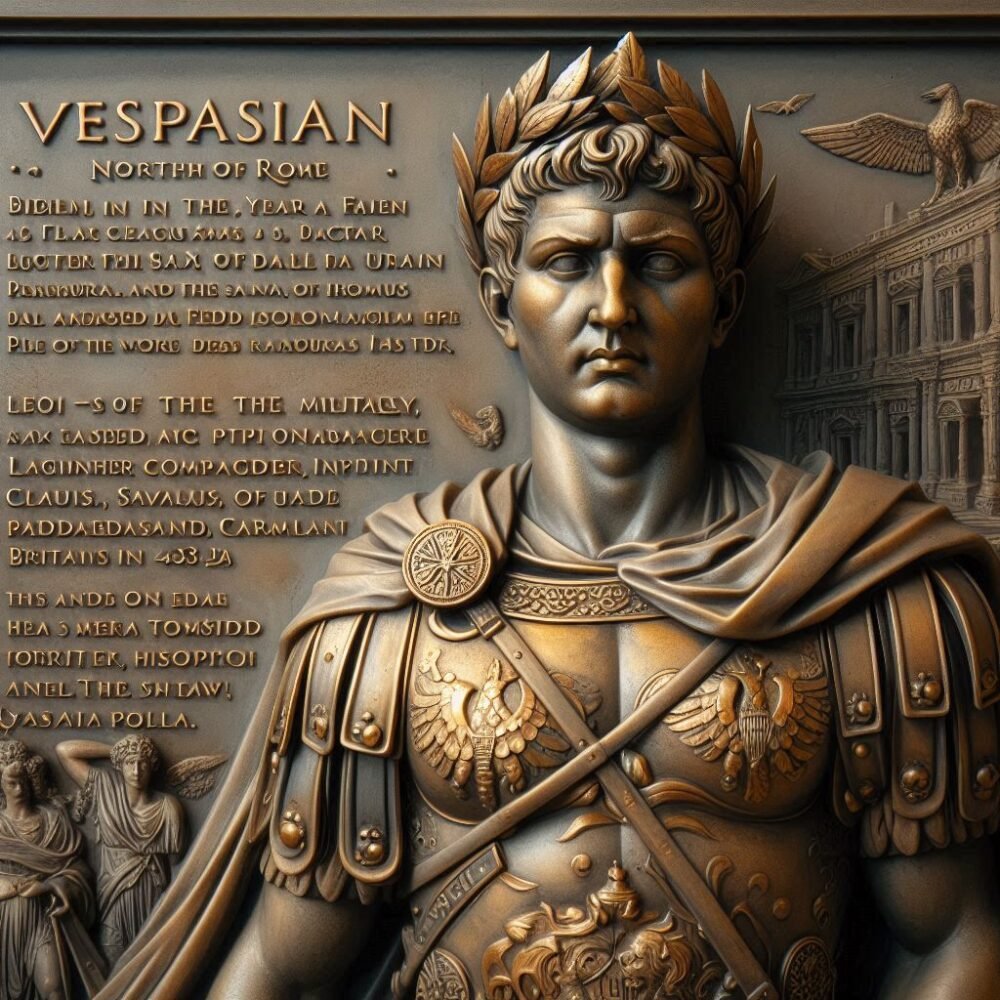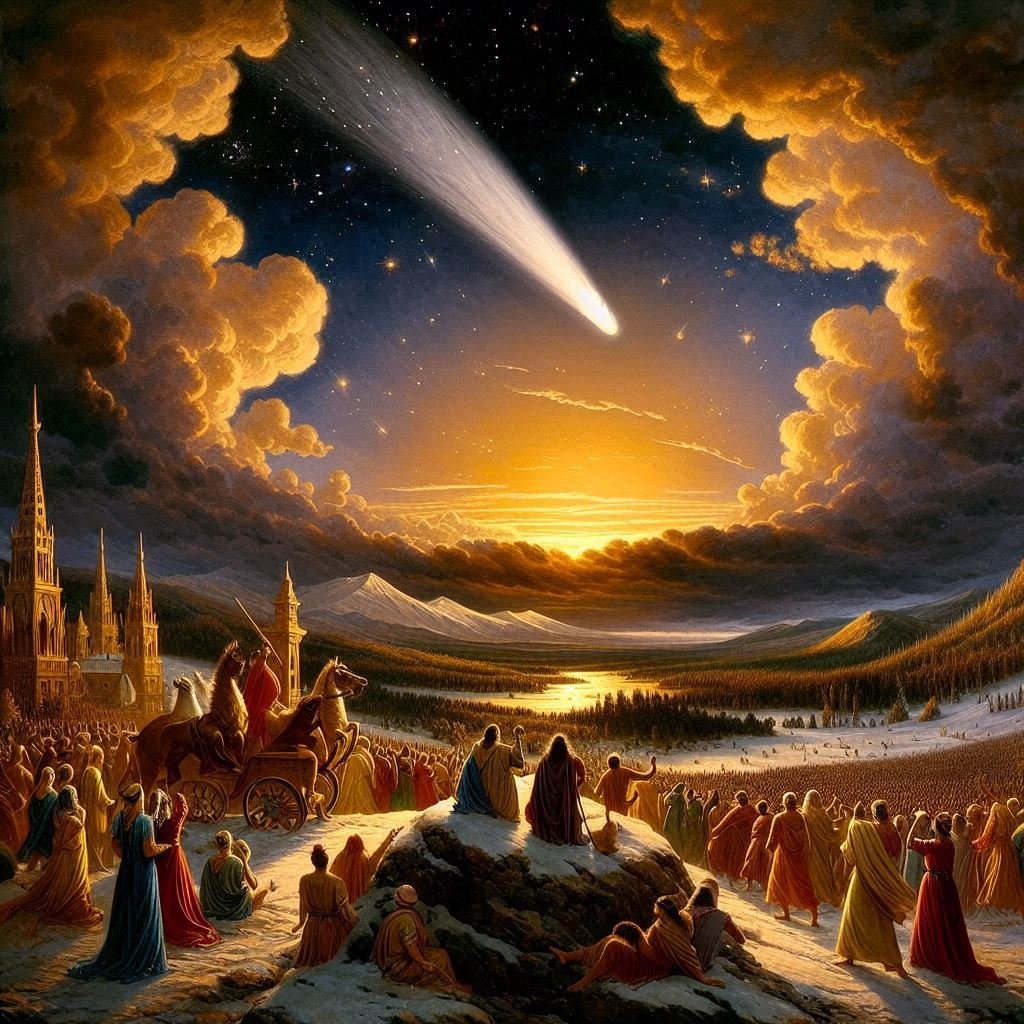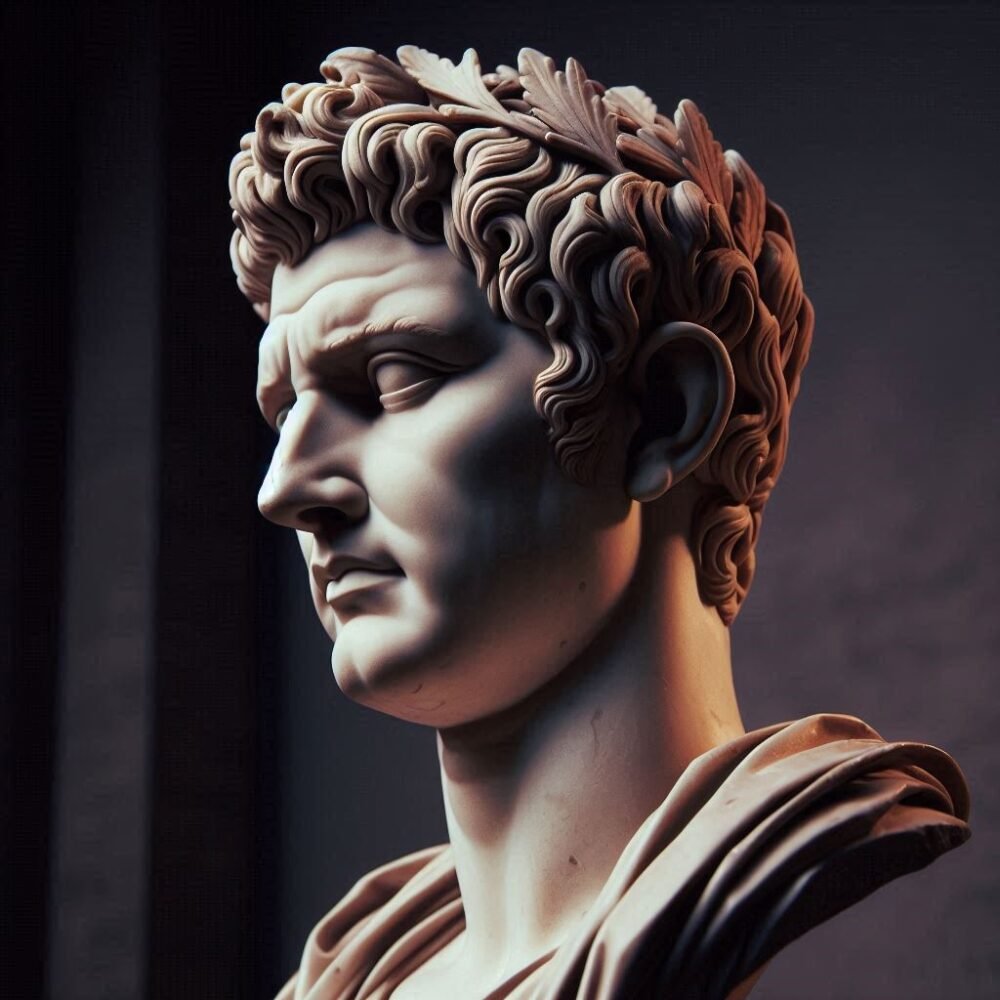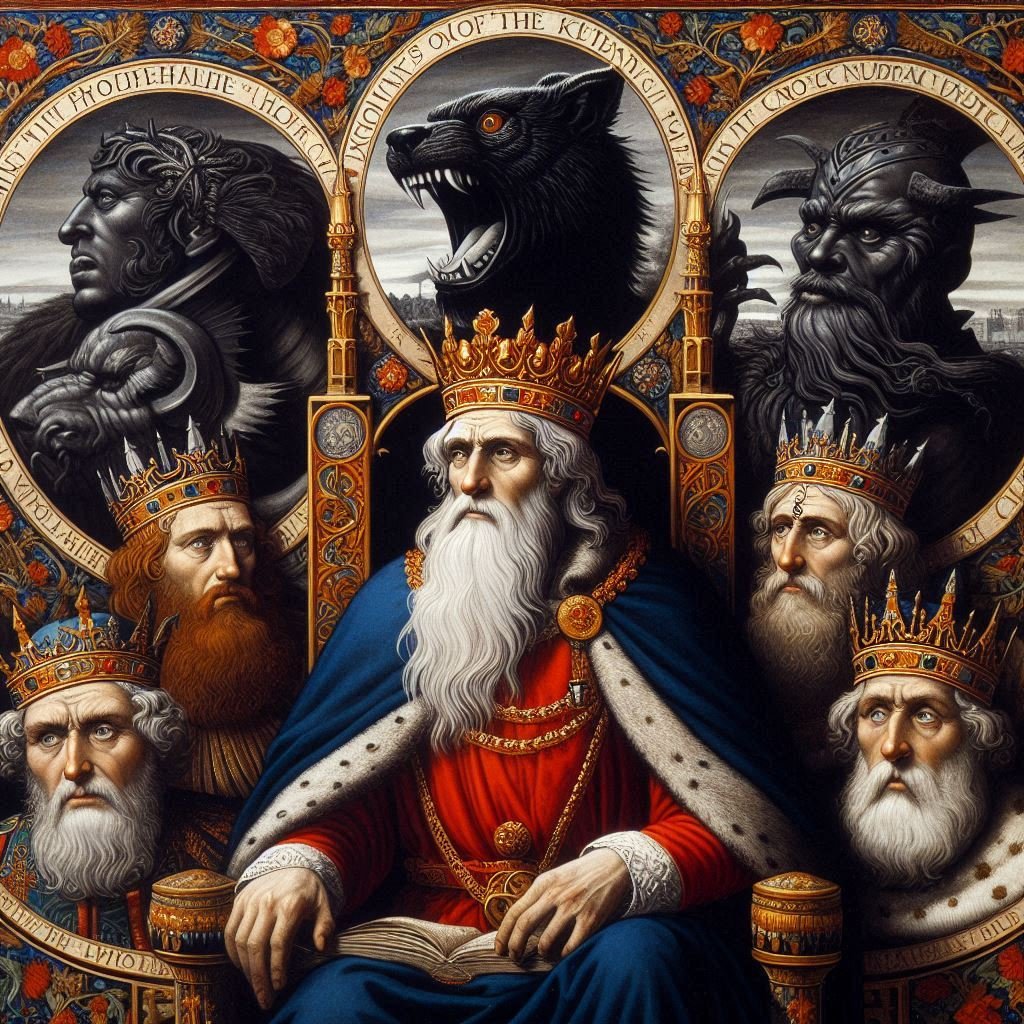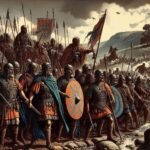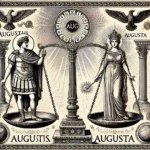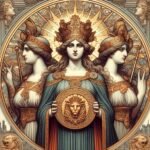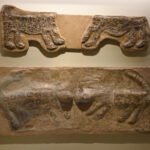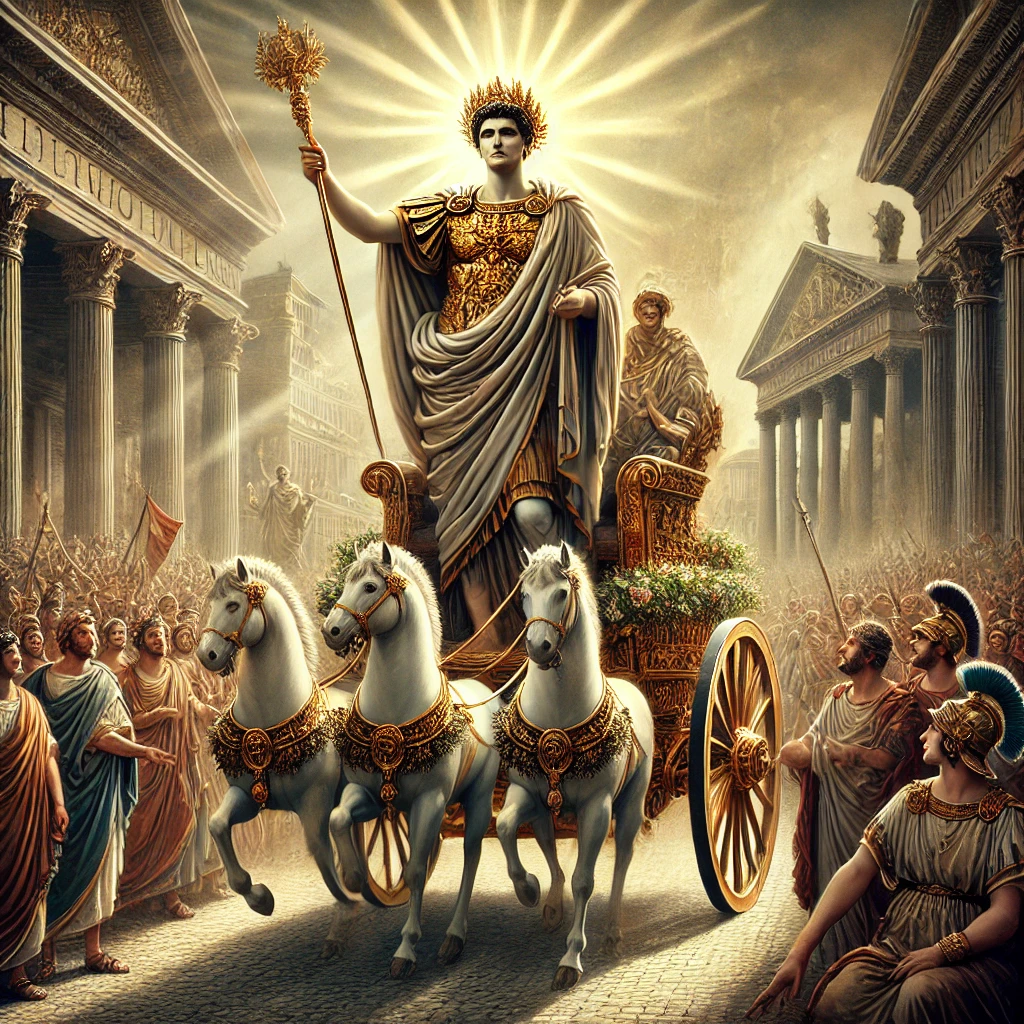
Emperor Augustus dressed as a deity, parading through ancient Rome
The Emperors Claim to Divinity
In Roman religion, the relationship between the emperors and the gods was complex and evolved over time. The concept of divinity in Roman imperial ideology became a central part of the Roman imperial cult and the emperor’s sacred authority. While there wasn’t a formalized concept of a “divine marriage” in the same way it was conceptualized in other ancient cultures, Roman emperors were often deified after their death, and some emperors cultivated a relationship with the gods that symbolized divine favour and their role as earthly representatives of the gods. Let’s break down the key aspects of the emperor’s relationship with the gods:
The Emperor as Divine or Semi-Divine
Divinization (Apotheosis): The most significant aspect of the emperor’s relationship with the gods was the idea of divinization or apotheosis, where an emperor was declared a god after death. The emperor’s deification was often a key part of the imperial cult of the emperor. Once an emperor died, his soul was believed to ascend to the heavens, and he was honoured as a god, often receiving divine worship and having temples built in his name.
Divine Titles: Emperors who were deified were often referred to as “Divus” (divine) or “Divi Filius” (son of a god), especially if they were the sons of a deified emperor, such as Augustus being the son of the deified Julius Caesar.
Symbolizing Divine Rule: The emperor was seen as a mediator between the divine and human realms, with his role being to enforce cosmic order on earth. His relationship with the gods helped reinforce his legitimacy as ruler.
The Imperial Cult
The imperial cult was a central institution in Roman religion, where emperors (both living and deceased) were worshipped as divine figures. This cult spread throughout the Roman Empire, particularly in the provinces. Emperor worship was an important aspect of maintaining loyalty and unity across the vast empire.
In some cases, the emperor was considered a living god, and rituals were performed in his honour. For example, Augustus was given divine honours during his lifetime, becoming the first emperor to be worshipped as a god, even while alive.
The emperor was also seen as the chief priest of the empire, performing sacrifices to ensure divine favour for the Roman people and empire.
The Emperor’s Role as the Divine Representative
The emperor was sometimes viewed as the earthly representative of a particular god or gods. For example, Jupiter, the king of the gods, was considered to have a special relationship with the emperor, especially as the emperor’s role was to maintain divine justice on earth.
Some emperors, such as Caligula, went even further by claiming to be the literal embodiment of certain gods. For example, Caligula famously declared himself the god Jupiter, and Nero sought to elevate himself to a godly status as well.
Divine Marriages and Consorts
Although the idea of a divine marriage between the emperor and a goddess wasn’t institutionalized in the same way it was in some other cultures, there are examples of emperors and empresses being connected to deities in a symbolic or ceremonial way, often to reinforce the divine right to rule.
Imperial Empresses: The empress was often seen as semi-divine or closely associated with the gods through her role. The relationship between the emperor and the empress could be seen as a sacred union in some instances. For example, Livia, the wife of Augustus, was worshipped as a goddess after her death, and her role as the mother of the divine emperor Tiberius was emphasized. Julia Domna, the wife of Septimius Severus, was also venerated in certain contexts, and sometimes referred to as “Augusta” (the female equivalent of Augustus).
In some cases, emperors themselves would associate with goddesses to enhance their image. For instance, the goddess Roma was frequently used to represent the idealized Roman state and, in certain instances, the emperor was portrayed in unity with Roma as the divine protector of the empire. Similarly, Isis, the Egyptian goddess, was popular among Roman emperors, and they may have symbolically aligned themselves with her as a protector figure.
The “Divine Consort” Concept
While the Roman emperors themselves were often portrayed as semi-divine or godlike, the empress sometimes played the role of a “divine consort”, especially when she was deified after her death. This status allowed the emperor and empress to be represented as a divine couple, symbolizing divine rule together.
The emperor’s relationship with the goddess Roma, for instance, may symbolize a marriage between the state and the imperial family, reinforcing the idea that the emperor and the empire were in a sacred union that was divinely sanctioned.
Examples of “Divine Marriages” and Symbolic Unions:
Jupiter and Juno: The Roman mythological pair of Jupiter and Juno served as the archetype of the divine marriage. The emperor was sometimes associated with Jupiter as a protector of the state, and the empress could be linked to Juno, symbolizing a divine balance between the two roles.
The Imperial Couple: In the Roman world, the emperor and empress might symbolically be paired with deities in the way a king and queen would have divine counterparts. The relationship between the imperial couple and the gods would be portrayed as an idealized union, symbolizing their rule as ordained by the gods.
Conclusion: A Divine Marriage between the Emperor and the Gods?
While there was no formalized concept of a divine marriage in the strict sense between the emperor and a goddess, Roman imperial cults often symbolized the emperor’s role as being divinely ordained. In many ways, the emperor could be seen as married to the empire, with the goddess Roma or Juno acting as symbolic consorts, representing the unity between the gods and the emperor’s reign.
The imperial family—particularly the empresses—were often deified after death and associated with the gods, strengthening the divine aura around the emperor’s rule. This symbolic marriage between the emperor and the gods reinforced the sacred nature of their reign and their cosmic responsibility to uphold divine order. The emperor’s relationship with the gods was central to his legitimacy, as the ruler of Rome was often seen as both divine and earthly, playing a role in maintaining the cosmic balance between the gods and humankind.

